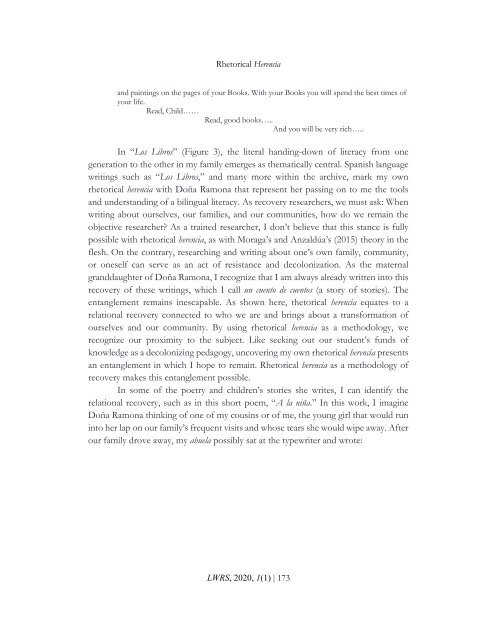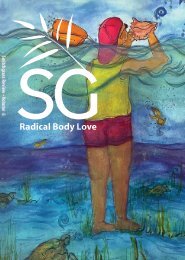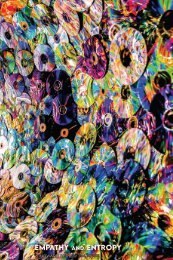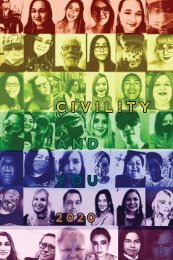LWRS June 2020 Volume 1, Issue 1
Inaugural Issue co-edited by Yndalecio Isaac Hinojosa and Isabel Baca
Inaugural Issue co-edited by Yndalecio Isaac Hinojosa and Isabel Baca
You also want an ePaper? Increase the reach of your titles
YUMPU automatically turns print PDFs into web optimized ePapers that Google loves.
Rhetorical Herencia<br />
and paintings on the pages of your Books. With your Books you will spend the best times of<br />
your life.<br />
Read, Child……<br />
Read, good books…..<br />
And you will be very rich…..<br />
In “Los Libros” (Figure 3), the literal handing-down of literacy from one<br />
generation to the other in my family emerges as thematically central. Spanish language<br />
writings such as “Los Libros,” and many more within the archive, mark my own<br />
rhetorical herencia with Doña Ramona that represent her passing on to me the tools<br />
and understanding of a bilingual literacy. As recovery researchers, we must ask: When<br />
writing about ourselves, our families, and our communities, how do we remain the<br />
objective researcher? As a trained researcher, I don’t believe that this stance is fully<br />
possible with rhetorical herencia, as with Moraga’s and Anzaldúa’s (2015) theory in the<br />
flesh. On the contrary, researching and writing about one’s own family, community,<br />
or oneself can serve as an act of resistance and decolonization. As the maternal<br />
granddaughter of Doña Ramona, I recognize that I am always already written into this<br />
recovery of these writings, which I call un cuento de cuentos (a story of stories). The<br />
entanglement remains inescapable. As shown here, thetorical herencia equates to a<br />
relational recovery connected to who we are and brings about a transformation of<br />
ourselves and our community. By using rhetorical herencia as a methodology, we<br />
recognize our proximity to the subject. Like seeking out our student’s funds of<br />
knowledge as a decolonizing pedagogy, uncovering my own rhetorical herencia presents<br />
an entanglement in which I hope to remain. Rhetorical herencia as a methodology of<br />
recovery makes this entanglement possible.<br />
In some of the poetry and children’s stories she writes, I can identify the<br />
relational recovery, such as in this short poem, “A la niña.” In this work, I imagine<br />
Doña Ramona thinking of one of my cousins or of me, the young girl that would run<br />
into her lap on our family’s frequent visits and whose tears she would wipe away. After<br />
our family drove away, my abuela possibly sat at the typewriter and wrote:<br />
<strong>LWRS</strong>, <strong>2020</strong>, 1(1) | 173





